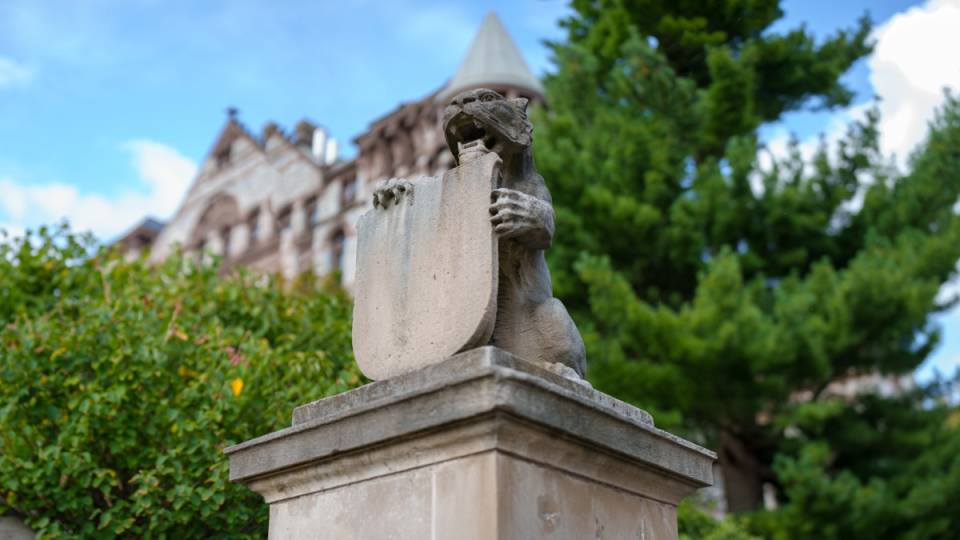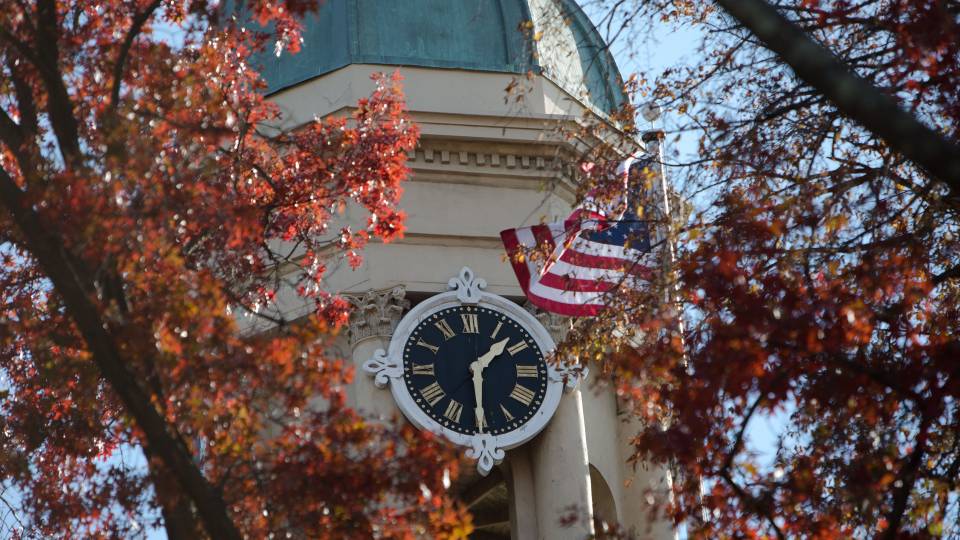Eleven scholars from disciplines spanning the humanities, engineering, the sciences and the social sciences have been named Presidential Postdoctoral Research Fellows at Princeton.
The Presidential Postdoctoral Research Fellows program recognizes and supports outstanding scholars who will make important contributions in their fields. By bringing together scholars across academic fields, the program allows them to deepen their disciplinary expertise while testing out new ideas from other disciplines. These scholars will contribute to the University’s excellence and its diversity, broadly defined. Financial support is provided for up to two years at full salary.
“We have brought in a talented cohort of scholars from various sectors of American society and from across the globe,” said Frederick Wherry, vice dean for diversity and inclusion in the Office of the Dean of Faculty and the Townsend Martin, Class of 1917 Professor of Sociology.
Wherry continued: “They run the range of the university’s disciplines, but they share in their potential to address some of the biggest challenges in their disciplines and in the world. These cohorts of talented future faculty enable us to meet our core goals of excellent teaching and innovative research.”
The 2023 Presidential Postdoctoral Research Fellows are listed below.

From left: Alexander Adames, Stevie Custode, Estela Diaz, and J. Felix Gallion
Alexander Adames joins the Department of Sociology, studying social stratification and inequality, with a focus on educational inequality and racial inequality in the U.S. Adames holds a Ph.D. and M.A. in sociology from the University of Pennsylvania, an M.A. in statistics from the Wharton School, University of Pennsylvania, and a B.A in sociology from the University of Virginia. He is co-advised by Yu Xie, the Bert G. Kerstetter ’66 University Professor of Sociology and the Princeton Institute for International and Regional Studies, Professor of Sociology Tod Hamilton, and Assistant Professor of Sociology John Robinson.
Stevie Custode joins the Department of Psychology. Her research focuses on how the contextual factors of everyday environments influence children’s early language and social interactions and ultimately their language development. Custode holds a Ph.D. in developmental psychology from the University of Miami, an M.A. in applied psychology from New York University, and a B.A. in psychology from the University of Tennessee. She is advised by Professor of Psychology Casey Lew-Williams.
Estela Diaz joins the Department of Sociology. Her research examines the commodification of child rearing through a case study of private nursery, preschool and kindergarten admissions in New York City. From Columbia University, Diaz holds a Ph.D., M.Phil. and M.A in sociology, and she earned her A.B. in sociology from Princeton University in 2014. She is advised by Professor of Sociology and Public Affairs Jennifer Jennings.
J. Felix Gallion joins the Department of English, with a focus on interdisciplinary approaches to the study of media, race, labor and migration. Gallion’s current research explores U.S. agriculture as a carceral system through the lived experiences of Mexican American/Chicanx farmworkers. Gallion holds a Ph.D. and M.A. in English from the University of Pennsylvania and a B.A. in English and American studies from Cornell University. He is advised by Monica Huerta, assistant professor of English and American studies and the Donald A. Stauffer Bicentennial Preceptor.

From left: Archontoula Giannakopoulou, Amna Liaqat, Marayna Martinez, and Laetitia Mwilambwe-Tshilobo
Archontoula Giannakopoulou joins the Department of Chemical and Biological Engineering, with a research goal to deepen understanding of the design principles of biotechnological tools for numerous applications in the areas of renewable energy, the environment and human health. She aims to develop novel multifunctional synthetic systems, involving several aspects of nano-biotechnology and synthetic biology, to address challenges of renewable energy and the environment. Giannakopoulou holds a Ph.D. in biotechnology and a diploma of biology (intergraded master) from the University of Ioannina, Greece. She is advised by José L. Avalos, associate professor of chemical and biological engineering and the Andlinger Center for Energy and the Environment.
Amna Liaqat is appointed in the Center for Information Technology Policy. Her research seeks to build social technologies that help people connect, collaborate and learn in new ways. Liaqat holds a Ph.D. and an M.S. in computer science from the University of Toronto and a B.S. in business administration and computer science from Simon Fraser University. She is advised by Andrés Monroy-Hernández, assistant professor of computer science.
Marayna Martinez joins the Department of Politics. Her work aims to understand how childhood experiences with K-12 public schools and policies influence adult political behavior, particularly among Americans of color. Martinez holds a Ph.D. in political science and public policy from Duke University and a B.S. in political science and electrical engineering from the Massachusetts Institute of Technology. She is advised by Tali Mendelberg, the John Work Garrett Professor of Politics.
Laetitia Mwilambwe-Tshilobo joins the Department of Psychology. Her work focuses on loneliness and social connection, aiming to identify the mechanisms driving the feedback loop between how loneliness shapes brain function and how brain function determines people’s ability to connect. Mwilambwe-Tshilobo holds a Ph.D. in neuroscience from McGill University, an M.A. in developmental psychology from Cornell University, an M.Sc. in biology/neuroscience from the University of Hartford, and a B.A. in neuroscience from the College of Wooster. She is advised by Diana Tamir, professor of psychology.

From left: Sultan Abdul Wadood, Maha Yusuf, Erik Župa
Sultan Abdul Wadood is appointed in the Department of Electrical and Computer Engineering. His research uses quantum-inspired techniques to improve classical imaging and communications. Wadood holds a Ph.D. in optics from the Institute of Optics at the University of Rochester and a B.E. in electrical engineering from the National University of Sciences and Technology, Pakistan. He is advised by Jason Fleischer, professor of electrical and computer engineering.
Maha Yusuf joins the Department of Mechanical and Aerospace Engineering, where she will combine her expertise in advanced neutron and X-ray-based characterization with physics-based modeling and 3D manufacturing to engineer anodes for long-life lithium-metal-free solid-state batteries. She holds a Ph.D. and M.S. in chemical engineering from Stanford University. She holds a B.E. in chemical engineering from National University of Sciences and Technology, Pakistan. She is advised by Kelsey Hatzell, assistant professor of mechanical and aerospace engineering and the Andlinger Center for Energy and the Environment.
Erik Župa is appointed in the Department of Molecular Biology. His research focuses on revealing the molecular details by which malaria and related parasites remodel their membranes. Župa holds a Ph.D. in biology from Heidelberg University, Germany, and from Masaryk University Brno, Czech Republic, an M.S. in biomolecular chemistry and a B.S. in biochemistry. He is advised by John Jimah, assistant professor of molecular biology and James A. Elkins, Jr. ’41 Preceptor in Molecular Biology.






